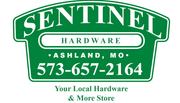
Your pet’s health is a priority, and that starts with a nutritious diet. Even though you may not have a professional’s understanding of the specific nutritional needs of your companion, there are a few basic guidelines you can follow to help you choose a healthier pet food. This overview will help you know what to keep an eye out for and what to avoid.
What Should You Look for in Pet Food?
Byproducts
Many pet owners avoid food that contains meat byproducts because they’re considered undesirable in food eaten by humans. Such byproducts consist of cleaned intestines, livers, kidneys, and similar organ meat that’s ground up and mixed in with the food.
Fortunately, there’s no need to fear these in pet food. For dogs and cats, these byproducts are actually healthy and help provide an array of nutrients, vitamins, and minerals.
Certification Labels
Whether you buy food at a pet supply store a supermarket, every brand should display the AAFCO (Association of American Feed Control Officials®) certification seal. This will tell you the ingredients have met the organization’s quality standards.
The AAFCO also tests and certifies each type of dog and cat food to ensure it provides the nutrition a pet needs at their specific stage of life. They test puppy and kitten food, senior pet food, food for active pets, and other age-specific recipes to ensure they’re packed with the most beneficial nutrients.
What Should You Avoid?
Fancy Marketing Promises
 You’ll often see words like “organic,” “natural,” or “holistic” on the packaging for pet food, but don’t let that trick you into thinking you’re buying a healthier food. These terms are used merely to let buyers know how the food was sourced or that artificial ingredients weren’t used.
You’ll often see words like “organic,” “natural,” or “holistic” on the packaging for pet food, but don’t let that trick you into thinking you’re buying a healthier food. These terms are used merely to let buyers know how the food was sourced or that artificial ingredients weren’t used.
While these factors are positive, you’ll have to go deeper and read the ingredient panel carefully to find out what specific ingredients and nutrients are in the food. Generally, you want whole proteins to be listed at the beginning of the ingredients, which means they make up a higher percentage of the food.
Grains
Unless your pet is allergic to grains, it’s not important to specifically look for food that doesn’t contain them. Signs that your pet may be allergic to their food include loss of fur, hot spots, frequent vomiting, and excessive itchiness. If you pet demonstrates these problems, your vet can help confirm an allergy and recommend switching to a grain-free food.
Located in Ashland, MO, Sentinel Lumber & Hardware provides food for household pets as well as feed for livestock. Our Black Gold Pet Food does offer varieties in Performance, Life Stages and Grain-Free options. This is in addition to the full range of lumber and hardware they sell to help their customers complete any project they may be tackling around the home or farm. Learn more about their products by visiting their website or call (573) 657-2164 to speak to a team member about your needs.
About the Business
Have a question? Ask the experts!
Send your question

